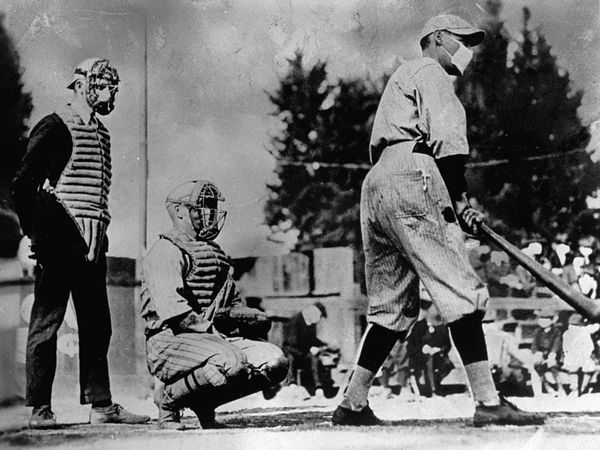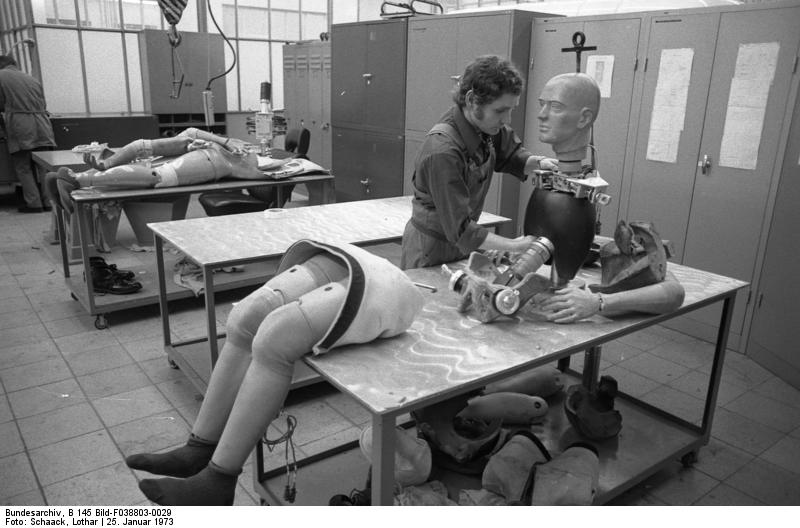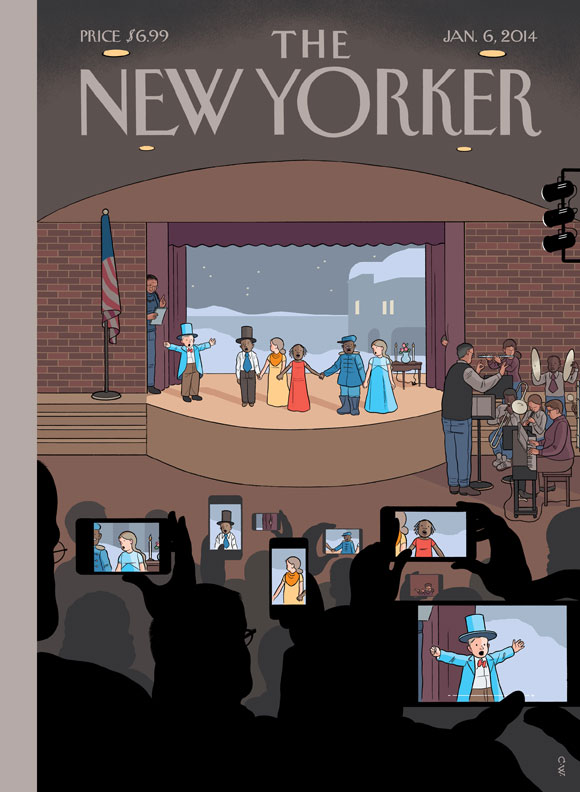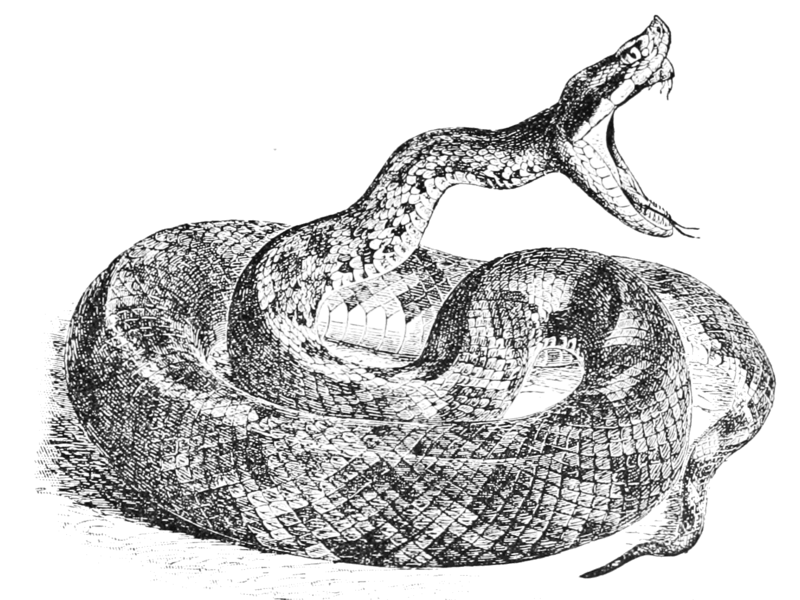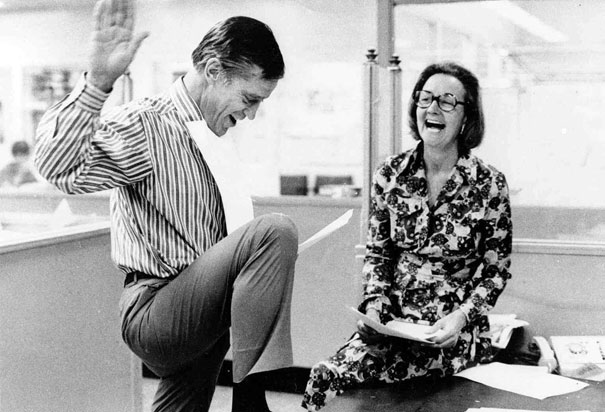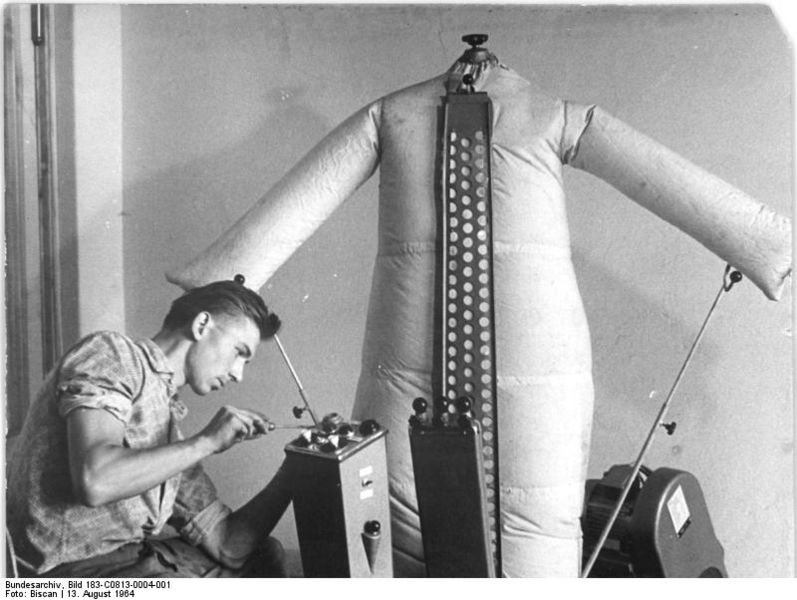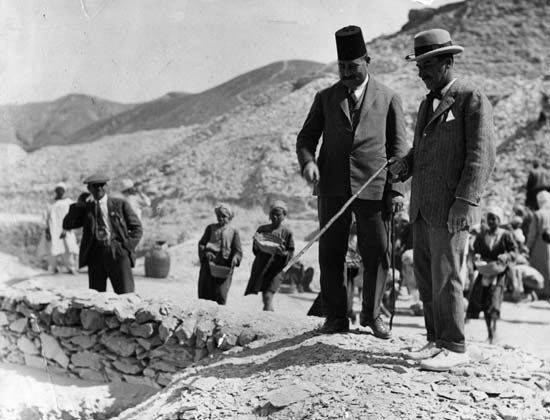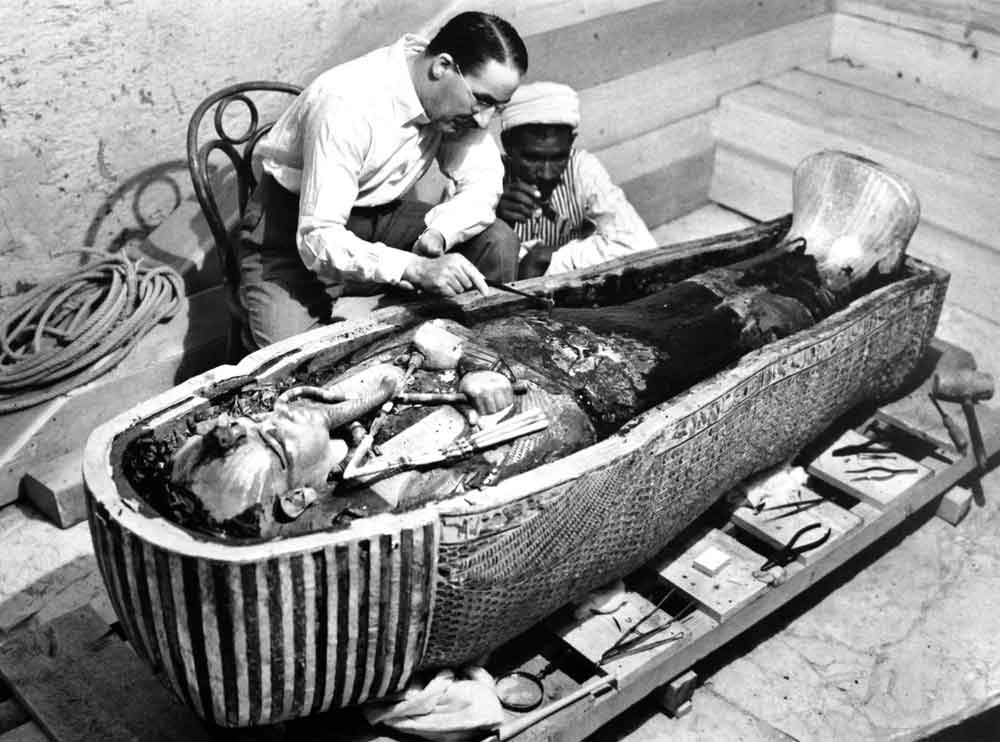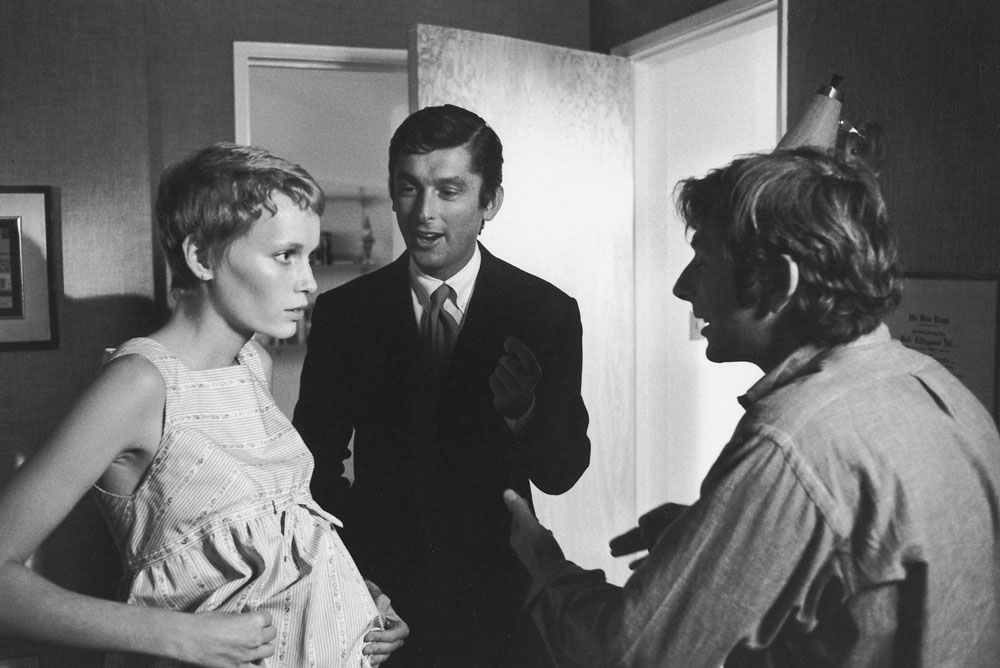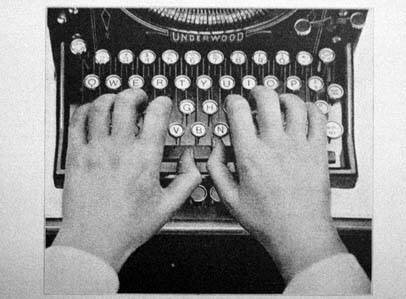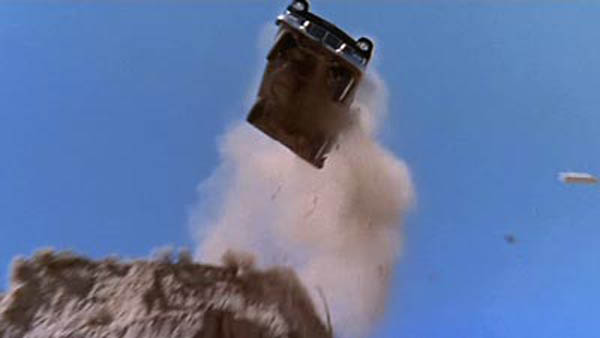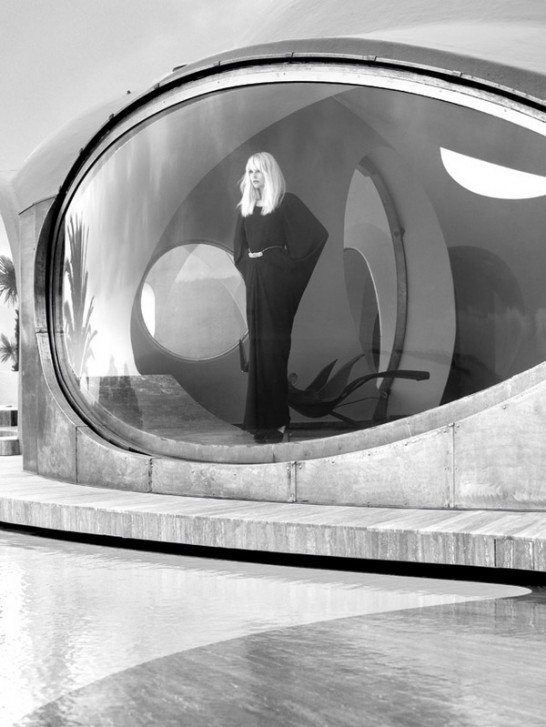
I wish I had more of a feel for pop culture than I do, but most of it leaves me cold, from comic-book film adaptations to reality TV to pop music. I just don’t care. I don’t think I’m better than it–just separate from it.
For instance: I’ve never had any interest in Star Trek, the TV series or films. I actually feel physical pain if I have to sit through it. But creator Gene Roddenberry was obviously a special guy and not only for his progressive outlook on race and gender. In a 1976 Penthouse interview conducted by Linda Merinoff, Roddenberry laid out the next 40 years of our society, from the Internet to email to swarms and crowdsourcing to the decline of the traditional postal service to online learning to the telecommunications revolution. Three excerpts follow.
_________________________
Penthouse:
What is happening to television as a piece of mechanical equipment?
Gene Roddenberry:
I think there is little doubt that we’re probably on the threshold of a whole new revolution in telecommunications. We are now experimenting with mating television sets with print-out devices, think of TV mated with a Xerox-type machine in which probably our newspapers will ultimately be delivered. It’s a much more efficient system. The minute you put the newspaper to bed electronically, you can then push a button and any house that subscribes to the service can have the thing rolled right out of the TV set. We’re also experimenting, in some cities already, with mating television with simple computers and the home will be run by a home-computing feature. You’ll do your billing on it, your banking, probably a great part of your shopping. I think it is inescapable that we mate TV with reproducing devices, that it will become our postal system of the future, almost certainly our telephone or videophone. So I see television going in either of two directions. One is that it can become that opiate we fear. Or, used properly, it can be a way for all people, everywhere, to have access to all the recorded knowledge of all humanity.
_________________________
Penthouse:
Where do you think mankind is heading?
Gene Roddenberry:
There’s a theory I have that i’ve been making notes on for a couple of years now and intend to write a book on it sometime in the future. You often hear the question, “I wonder what the next dominant species will be?” I think that completely unnoticed by practically all people is the fact that the next dominant species on earth has already arrived and has been with us for some time. And this is a species that I call socio-organism. It first began to make its appearance when men started to gather together in tribal groups, and then city-states, and more lately in nations, giant corporations, and so on. The socio-organism is a living organism that is made up of individual cells–which are human beings. In other words the United States of America is a socio-organism. It is made up of 200 million cells, many of them become increasingly specialized just as the cells in our body do. Furnish food, take away waste products, or the nerves–the sight, the thinking, the planning. Your local PTA is also a small socio-organism. General Motors and ITT are socio-organisms. The interesting thing about this new creature is that unlike all the past life forms, one cell in a socio-organism can be a member of several of these socio-organisms. Also, they do not have to live in physical proximity with each other as in our bodies. It sounds a rather foolish sci-fi thing to say that General Motors is a living organism. But if you take a few steps back and view it from this point of view, you begin to discover that the evolution of this socio-organism almost exactly parallels everything we know about Darwinian evolution.
Briefly, Darwinian evolution is fairly generally accepted, that the first life forms on earth were individual cells floating on the warm soup seas of the time. Finally, through chance and other factors, groups of these cells discovered that by being gathered together they could get their food more efficiently, protect themselves, and become dominant over the single-cell amoebas. With humans, exactly the same thing happened. More and more individual units began to get more and more specialized. As it became more complex, with more and more highly specialized units, the creature became more and more powerful, was capable of protecting itself, taking care of its individual cells. This is a process of accumulating interdependence. The frightening thing about viewing humankind now, this way, is that the socio-organisms are really becoming more dominant than the individual. In Red China they are teaching the very lessons that our bodies have, over the centuries, taught to its cells–that we can no longer exist for ourselves. We must exist for the whole. But you can see the same thing in the United States. People now live the corporate morality. If I join a corperation, my duty is to the corperation. If the corperation says lie, cheat, steal, move here, do that, I must do it because my duty is to the whole. So if indeed civilization is following the laws of Darwinian evolution, you can predict ahead a few centuries or a few dozen or hundred centuries, until a time in which the independent individual will have totally vanished and this planet will be inhabited by totally specialized cells who function as part of these giant, living things. The great battle and great decision we humans face is whether to let this continue until we become faceless, totally interdependent organisms. Whether this is goood or bad I don’t know. You might, if it were possible, talk to a cell of my heart and say, “Look cell, are you happy?” It seems to have adapted well. Maybe this is the way it suppose to be. Maybe there is some form of mass mind, mass consciousness, when a socio-organism reaches its final form, and we will be part of it and perfectly happy to be part of it. There may be contentments and happiness in this that we presently can’t visualize. I fear it because I can’t visualize it being better than remaining a free individual. I also fear the fact that is I remain, and insist on remaining totally independent and free, that the way things are going I am to be treated as a cancer cell by the socio-organisms around me, which will find it necessary to eradicate me because I endanger the organism.
Penthouse:
What is one’s purpose in this socio-organism? Just to survive?
Gene Roddenberry:
No. My purpose… that’s a hard question. I’ll try to answer it. My purpose is to live out whatever my function may be as a part of the whole that is God. I am a piece of Him. I believe that all intelligence is a part of the whole and it may be a great cyclical thing in which we have to go on, evolving, perfecting, until we reach the point where we are God, so that we can create ourselves so that we know we existed in the first place.
_________________________
Penthouse:
You’ve said that you felt that Star Trek was a very optimistic show. Are you still that optimistic in the 70’s about the future of mankind?
Gene Roddenberry:
Yes, but I think that if we have an earth of the Star Trek century, it will not be ab unbroken, steady rise to that kind of civilization. We’re in some very tough times. Our twentieth-century technological civilization has no guarantees that it is going to stay around for a long time. But I think man is really an incredible creature. We’ve had civilizations fall before and we build a somewhat better one on the ashes every time. And I’d never consider the society we depicted in Star Trek necessarily a direct, uninterrupted out-growth of our present civilization, with its heavy emphasis on materialism. I think But my optimism is not for our society. It’s for our essential ingredient in humankind. And I think we humans will rebuild and, if necessary, we’ll lose another civilization and rebuild again on top of that until slowly, bit by bit, we’ll get there.•

